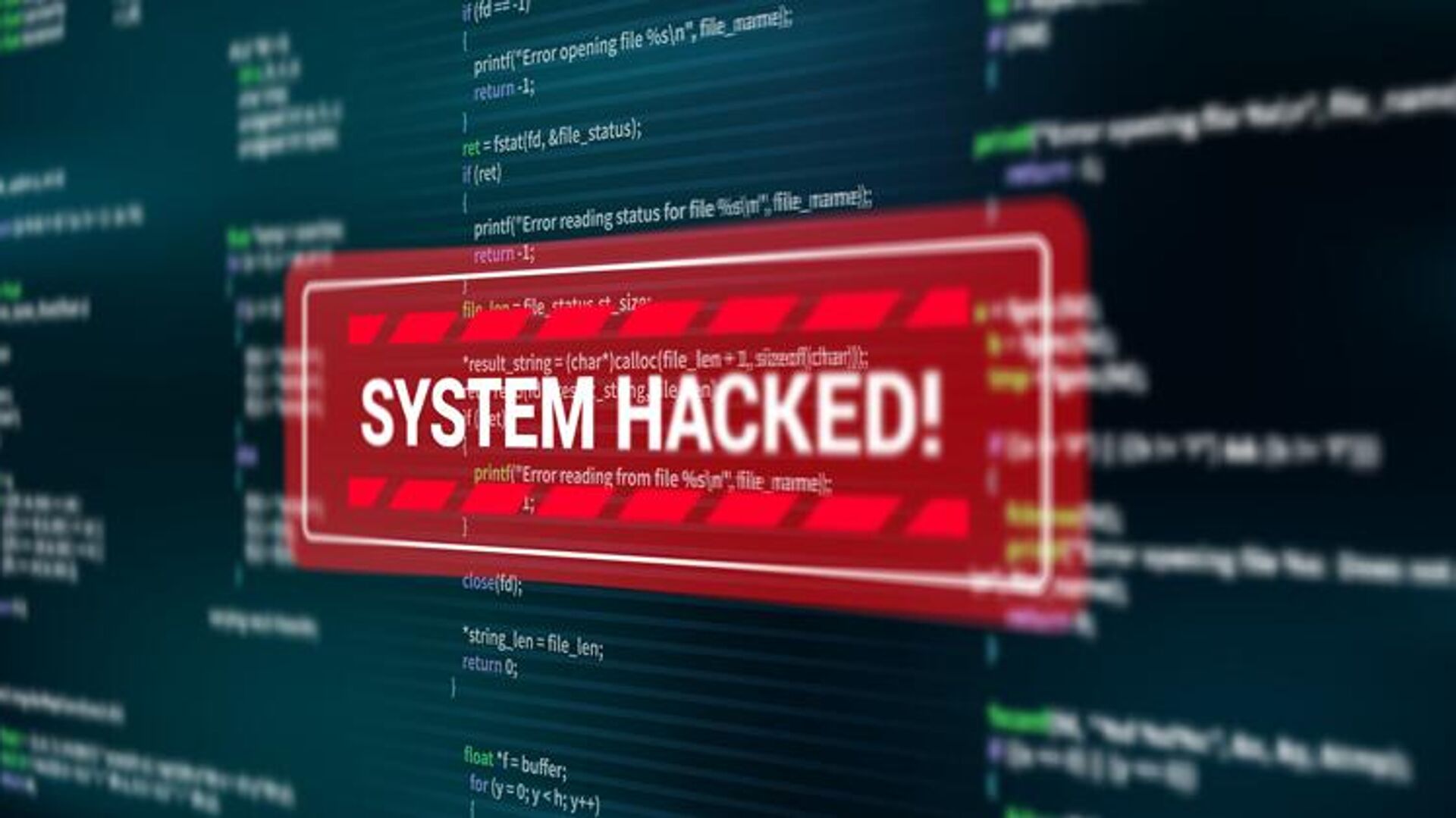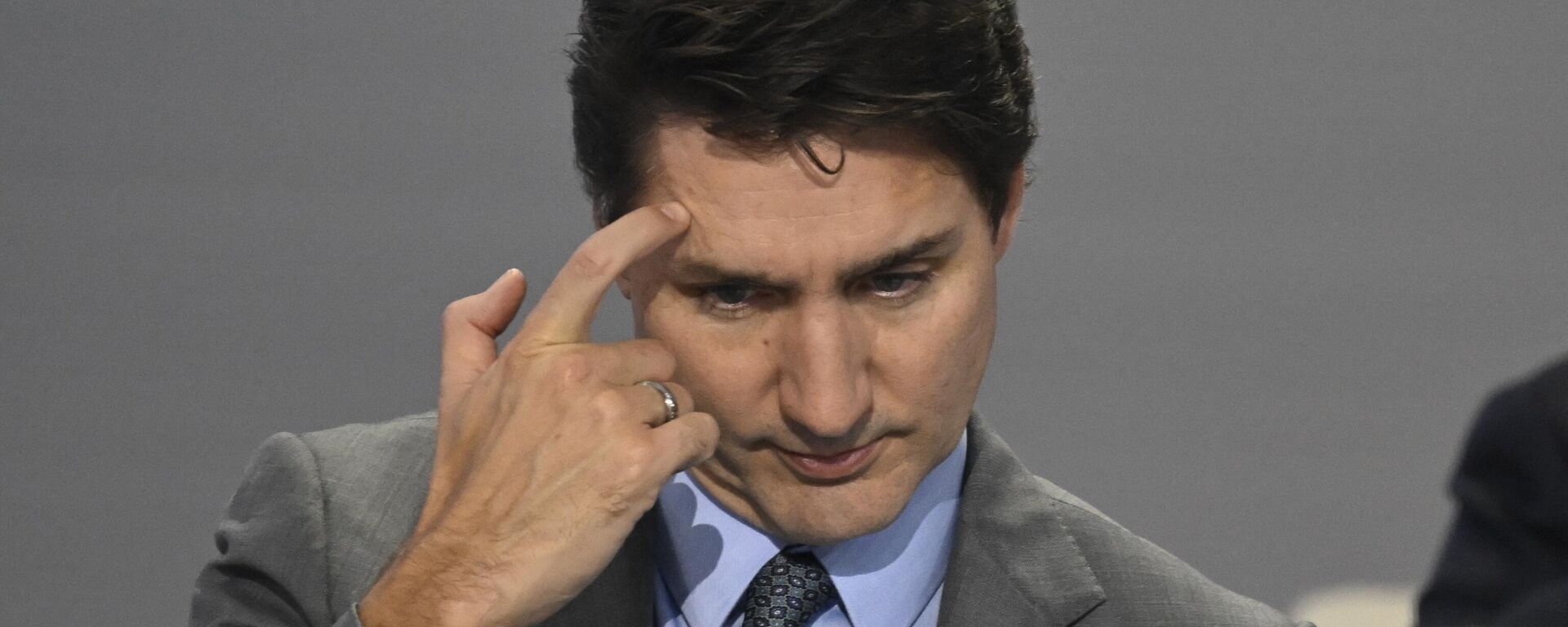https://sputniknews.in/20240625/can-cyber-attacks-on-critical-infrastructure-justify-terrorist-labelling-in-india-7692728.html
Do Cyberattacks on Critical Infrastructure in India Deserve to Be Labeled Terrorism?
Do Cyberattacks on Critical Infrastructure in India Deserve to Be Labeled Terrorism?
Sputnik India
India should push for cyber-terrorism to be a pivotal agenda item at the BRICS summit, aiming to set the foundation for global laws and agreements that enhance secure and ethical practices in cyberspace, ultimately ensuring global security and stability, a security expert said.
2024-06-25T15:58+0530
2024-06-25T15:58+0530
2024-06-26T12:10+0530
sputnik exclusives
india
sudan
indonesia
brics
the united nations (un)
un security council (unsc)
government of india
ministry of external affairs (mea)
ministry of defence (mod)
https://cdn1.img.sputniknews.in/img/07e8/06/19/7699896_27:0:774:420_1920x0_80_0_0_61755ffd25b4cb390beec4b1b46087c8.jpg
Cyber-attacks targeting critical infrastructure, financial institutions, and government networks should be treated akin to acts of terrorism.Terrorist organizations have begun exploiting cyberspace for radicalization, recruitment, and training, as well as for financial transactions using virtual assets and cryptocurrencies, the Charge d'Affaires and Deputy Permanent Representative R. Ravindra said during a UN Security Council debate on tackling evolving cyber threats.Estimates suggest that cyber-attacks may have caused global losses amounting to approximately $5.2 trillion between 2019 and 2023, according to him.This convergence of terrorism and cyber capabilities poses a serious threat to national security and global stability, he noted.Hence, it is essential to differentiate the types of cyber-attacks, the former head of the National Information Security Coordinator Cell (NSCS/PMO), retired Commander Mukesh Saini told Sputnik India.The expert highlighted the significance of effective log analytics and threat intelligence in distinguishing between legitimate concerns and malicious activities.India's Cyber Warfare Frontier PolicyMeanwhile, Saini mentioned that various international organizations, including Indonesian, that target entities in India are participating in cyber terrorism, aiming to pressurise national policies to conform to their own agendas.However, the analyst explained that cyber terrorism is broadly defined, encompassing a wide range of activities under its purview, with severe penalties such as life imprisonment, according to section 66F of the Information Technology Act 2000.As a result, he argued a significant portion of cyber terrorism cases today involve individuals who have no connection to terrorism whatsoever.Citing the case of 'Md Sarfaraj Alias Sonu vs. the State of Jharkhand', where an individual uploaded obscene photographs online, he noted that it clearly did not constitute cyber terrorism. Yet approximately 89% of cases fall into similar categories, Saini said.The pundit argued that the prosecution of cyber terrorism should fall within the provisions of the India’s Unlawful Activities (Prevention) Act (UAPA), where stringent safeguards are inherently built-in.Advancing Cyber-Terrorism on BRICS Summit AgendaThe main international hurdle, according to the expert, is defining terrorism and cyber terrorism as there is a lack of global consensus on these definitions, complicating effective solutions.The Commander urged to establish universally accepted definitions through bodies like the UN is crucial to addressing these challenges effectively.The expert warned that if a criminal located in Canada or USA commits a cyber-crime affecting another country, "the current international legal frameworks often struggle to address such cases effectively due to jurisdictional complexities".In the meantime, invited by the UN Secretary General as Governmental Expert in July 2005 to draft a cybersecurity resolution, Saini then collaborated over ten days with representatives from 15 other nations.However, due to political dynamics, particularly "between the West and other blocs", the resolution has faced obstacles and continues to be delayed annually without passage, he noted.On the other hand, he stressed the "need for standardization in cyber forensics globally", insofar as the effective intelligence and threat sharing cooperation is crucial for combating cyber threat worldwide. The evidence collected in one country should be universally accepted in courts of law across different jurisdictions, he proposed.The expert underscored that there should be no allowance for 'individuals to be considered terrorists in one country and social activists in another', necessitating international cooperation to address this discrepancy.Recent geopolitical conflicts underscore the urgency of enhancing international collaboration among nations to safeguard against both state-sponsored and terrorist cyber threats in the future, Saini concluded.
https://sputniknews.in/20240624/trudeau-refuses-to-condemn-khalistan-terrorism-on-kanishka-bombing-anniversary-7688419.html
india
sudan
indonesia
Sputnik India
feedback.hindi@sputniknews.com
+74956456601
MIA „Rossiya Segodnya“
2024
Swapna Nair
https://cdn1.img.sputniknews.in/img/07e7/09/12/4320104_0:0:681:681_100x100_80_0_0_ca8a7d4d582609272840ffdd1cde7278.jpg
Swapna Nair
https://cdn1.img.sputniknews.in/img/07e7/09/12/4320104_0:0:681:681_100x100_80_0_0_ca8a7d4d582609272840ffdd1cde7278.jpg
News
en_IN
Sputnik India
feedback.hindi@sputniknews.com
+74956456601
MIA „Rossiya Segodnya“
Sputnik India
feedback.hindi@sputniknews.com
+74956456601
MIA „Rossiya Segodnya“
Swapna Nair
https://cdn1.img.sputniknews.in/img/07e7/09/12/4320104_0:0:681:681_100x100_80_0_0_ca8a7d4d582609272840ffdd1cde7278.jpg
cyber-attacks, critical infrastructure, financial institutions, government networks, acts of terrorism, india's charge d'affaires and deputy permanent representative, r. ravindra during an unsc, cyber threats, cyber-attacks, global losses, terrorist organizations, cyberspace, radicalization, recruitment, training, financial transactions, virtual assets, cryptocurrencies, terrorism, cyber capabilities, national security, global stability, cybercrime, cyber activism, cyber terrorism, non-state actors, nation-state attacks, cyber intrusions, commander mukesh saini (retd), former head national information security coordinator cell, nscs/ pmo, india's cyber warfare frontier, anonymous sudan, indonesian entities, cyber terrorist threats, anonymous sudan, cyber operations, india, organizations, cyber terrorist entities, indonesia, india, cyber terrorism, information technology act 2000, cyber terrorism, life imprisonment, ‘raj ali vs. state of georgia, cyber terrorism, india’s unlawful activities (prevention) act (uapa), cyber terrorism, brics summit, terrorism and cyber terrorism, un , cyber-crimes, international legal frameworks, un secretary general, west and other blocs, cyber-terrorism, brics summit, ethical commerce, cyberspace, cyber forensics
cyber-attacks, critical infrastructure, financial institutions, government networks, acts of terrorism, india's charge d'affaires and deputy permanent representative, r. ravindra during an unsc, cyber threats, cyber-attacks, global losses, terrorist organizations, cyberspace, radicalization, recruitment, training, financial transactions, virtual assets, cryptocurrencies, terrorism, cyber capabilities, national security, global stability, cybercrime, cyber activism, cyber terrorism, non-state actors, nation-state attacks, cyber intrusions, commander mukesh saini (retd), former head national information security coordinator cell, nscs/ pmo, india's cyber warfare frontier, anonymous sudan, indonesian entities, cyber terrorist threats, anonymous sudan, cyber operations, india, organizations, cyber terrorist entities, indonesia, india, cyber terrorism, information technology act 2000, cyber terrorism, life imprisonment, ‘raj ali vs. state of georgia, cyber terrorism, india’s unlawful activities (prevention) act (uapa), cyber terrorism, brics summit, terrorism and cyber terrorism, un , cyber-crimes, international legal frameworks, un secretary general, west and other blocs, cyber-terrorism, brics summit, ethical commerce, cyberspace, cyber forensics
Cyber-attacks targeting critical infrastructure, financial institutions, and government networks should be treated akin to acts of terrorism.
Terrorist organizations have begun exploiting cyberspace for radicalization, recruitment, and training, as well as for financial transactions using virtual assets and cryptocurrencies, the Charge d'Affaires and Deputy Permanent Representative R. Ravindra said during a UN Security Council debate on tackling evolving cyber threats.
Estimates suggest that cyber-attacks may have caused global losses amounting to approximately $5.2 trillion between 2019 and 2023, according to him.
This convergence of terrorism and cyber capabilities poses a serious threat to national security and global stability, he noted.
Hence, it is essential to differentiate the types of cyber-attacks, the former head of the National Information Security Coordinator Cell (NSCS/PMO), retired Commander Mukesh Saini told Sputnik India.
"It is crucial to distinguish between cybercrime, cyber activism, cyber terrorism, non-state actors, nation-state attacks, and cyber intrusions. While they may all have similar impacts, they differ legally and in intent," he said. "The issue revolves around access and intent, where the illegal term 'access' underscores varying actions within this context."
The expert highlighted the significance of effective log analytics and threat intelligence in distinguishing between legitimate concerns and malicious activities.
India's Cyber Warfare Frontier Policy
Meanwhile, Saini mentioned that various international organizations, including Indonesian, that target entities in India are participating in cyber terrorism, aiming to pressurise national policies to conform to their own agendas.
"India has identified instances where entities such as Anonymous Sudan conducted cyber operations directed at India. Organizations responsible for such actions should be classified as cyber-terrorist entities," he noted.
However, the analyst explained that cyber terrorism is broadly defined, encompassing a wide range of activities under its purview, with severe penalties such as life imprisonment, according to section 66F of the Information Technology Act 2000.
As a result, he argued a significant portion of cyber terrorism cases today involve individuals who have no connection to terrorism whatsoever.
Citing the case of 'Md Sarfaraj Alias Sonu vs. the State of Jharkhand', where an individual uploaded obscene photographs online, he noted that it clearly did not constitute cyber terrorism. Yet approximately 89% of cases fall into similar categories, Saini said.
The pundit argued that the
prosecution of cyber terrorism should fall within the provisions of the India’s Unlawful Activities (Prevention) Act (UAPA), where stringent safeguards are inherently built-in.
Cyber terrorism "should only be prosecuted if there is direct evidence linking the accused to a designated terrorist organization or if the government sanctions the charges based on compelling evidence of terror related activities," the pundit said.
Advancing Cyber-Terrorism on BRICS Summit Agenda
The main international hurdle, according to the expert, is defining
terrorism and cyber terrorism as there is a lack of global consensus on these definitions, complicating effective solutions.
The Commander urged to establish universally accepted definitions through bodies like the UN is crucial to addressing these challenges effectively.
Once definitions are in place, the next critical aspect is "cooperation among nations, particularly in exchanging information and evidence across borders," Saini continued. "This cooperation necessitates revising laws to recognize and accept digital evidence, such as server logs or digital communications, which are crucial in investigating cyber-crimes."
The expert warned that if a criminal located in Canada or USA commits a cyber-crime affecting another country, "the current international legal frameworks often struggle to address such cases effectively due to jurisdictional complexities".
In the meantime, invited by the UN Secretary General as Governmental Expert in July 2005 to draft a cybersecurity resolution, Saini then collaborated over ten days with representatives from 15 other nations.
However, due to political dynamics, particularly "between the West and other blocs", the resolution has faced obstacles and continues to be delayed annually without passage, he noted.
The former Commandor believes that India should advocate for the inclusion of cyber-terrorism as a key agenda item in the BRICS summit, laying the groundwork for establishing holistic and multi-pronged laws and agreements that promote secure and ethical commerce in cyberspace, thereby safeguarding global security and stability.
On the other hand, he stressed the "need for standardization in cyber forensics globally", insofar as the effective intelligence and threat sharing cooperation is crucial for combating cyber threat worldwide. The evidence collected in one country should be universally accepted in
courts of law across different jurisdictions, he proposed.
The expert underscored that there should be no allowance for 'individuals to be considered terrorists in one country and social activists in another', necessitating international cooperation to address this discrepancy.
Recent geopolitical conflicts underscore the urgency of enhancing international collaboration among nations to safeguard against both
state-sponsored and terrorist cyber threats in the future, Saini concluded.



